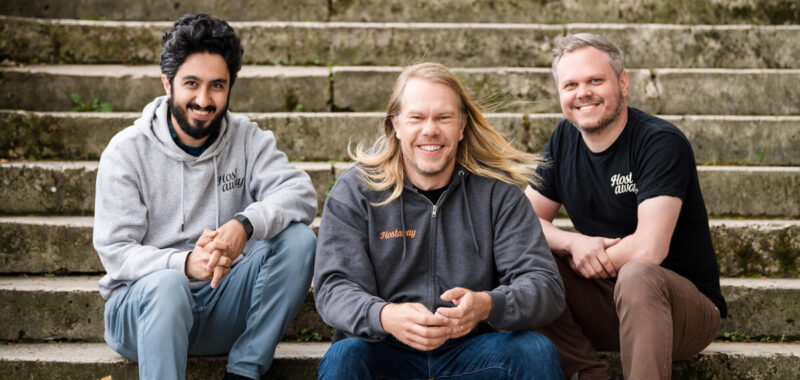Marcus Rader says he and his co-founder knew nothing about travel or vacation rentals when they started Hostaway 10 years ago. But the company, which provides platform for managing short-term rentals, has either doubled or tripled revenue every year for the past five years.
Rader said the company needed capital to keep up. More importantly, they needed a partner.
The company announced a deal Tuesday with General Atlantic for $365 million — one of the largest fundraises for a travel software company this year and among the largest ever in its sector.
“We’re both first-time founders, so we simply didn’t know what to do. We’ve never seen a company grow so fast to this stage,” Rader said in an interview with Skift.
There were a lot of prospects, he said, and Hostaway closed the deal in a couple of months.
“Once we met a couple of investors that we realized were not going to be good partners, it was very easy to see who the good partners were,” Rader said.
“We’ve done a lot of research, talking to other founders who have done similar things in the past, and the advice always seems to be that if you choose the wrong partner, you’re probably gonna end up in a very bad spot.”
The Challenges of Gaining Market Share
The short-term rental industry is still growing as people look for more authentic travel experiences and destinations off the beaten path.
With that comes a lot of growth potential for property management tech, but it’s a fragmented sector, often with different platforms for different-sized businesses and geographies.
Rader said there’s no clear market leader.
“The best we can talk about is 10%. That’s really what it takes to be a market leader in this market,” he said.
Much of the opportunity lies in winning customers that are using old systems or no system at all.
Depending on the segment and geography, many property managers use a combination of digital calendars and spreadsheets to manually track bookings and operations.
“There’s still a surprising amount of property managers that don’t really have a software,” Rader said.
“We’re in the right spot now, in the right segment, to have a strong growth ahead of us. And that’s why so many investors were interested.”
Some customers have just one or two properties. The company’s largest customer has 8,000 properties in six countries.
He declined to share how many customers and properties the startup serves. That’s because there’s no standard in the market to what constitutes a property, so he believes that companies often inflate their numbers, making comparisons inaccurate.
First the U.S., Now Europe
The company has customers in 91 countries, but the company has been focused mostly on the U.S.
“It’s time to expand,” Rader said.
The company is eyeing France, Italy, and Spain, markets that the company knows well but does not have a strong presence in. Rader moved to Warsaw, Poland — a fast-growing market — earlier this year to lead growth on the continent.
“There’s too many markets in Europe for us to conquer. For that, we need boots on the ground,” he said.
Tackling Europe will be tougher because of different currencies, languages, and rules around short-term rentals. That’s one of the reasons why competitors usually stick to one region.
“There’s a lot of companies in our space in Europe, and there’s a lot of companies in North America. But there’s not a single one that I can think of that would have a solid foundation on both continents.”
Focused on the Future of AI
The funding will also go toward product development, particularly integrating AI into the platform, with plans for AI-powered messaging, content creation, and language translation.
Rader said the company has invested a lot in its direct booking engine, and that will continue. He believes the tool is vital to helping clients stay ahead with the future of online search, however that may look as AI continues to advance.
“Something is going to happen with AI and the way people search for travel. We don’t know what, but what we do know is that we need to be at the forefront of that,” he said.

